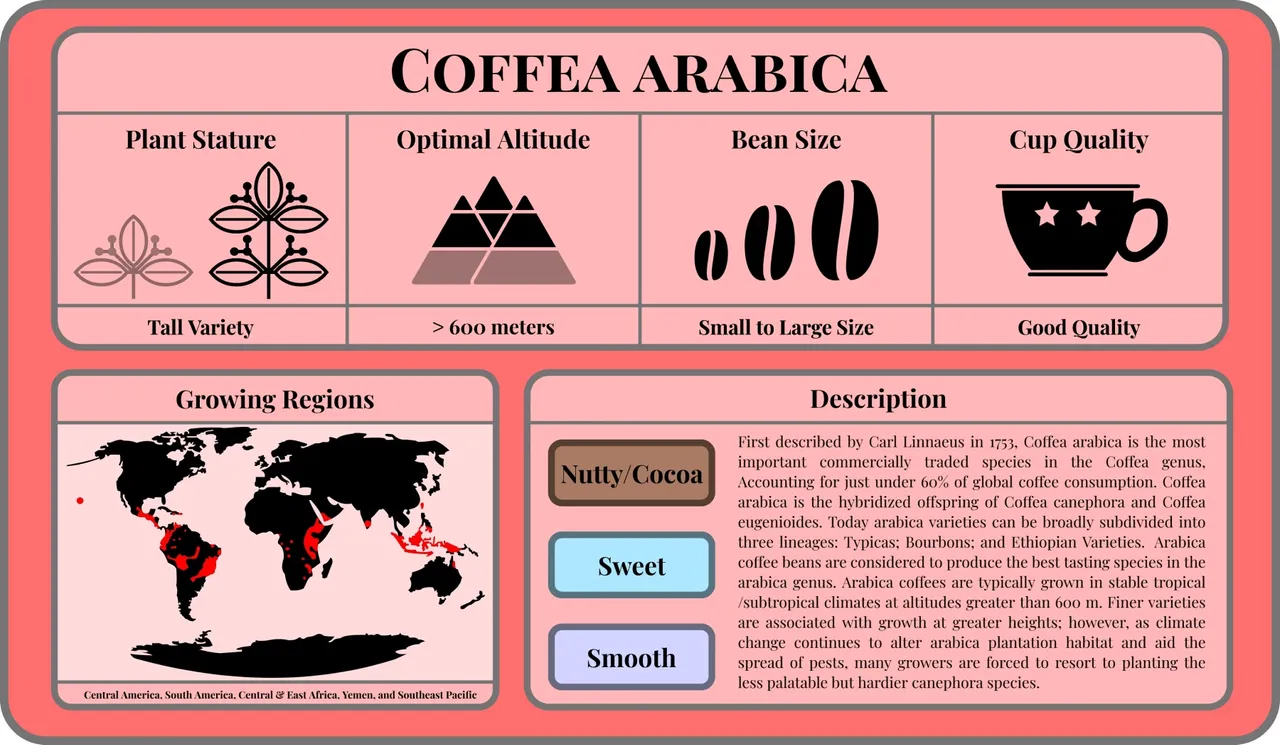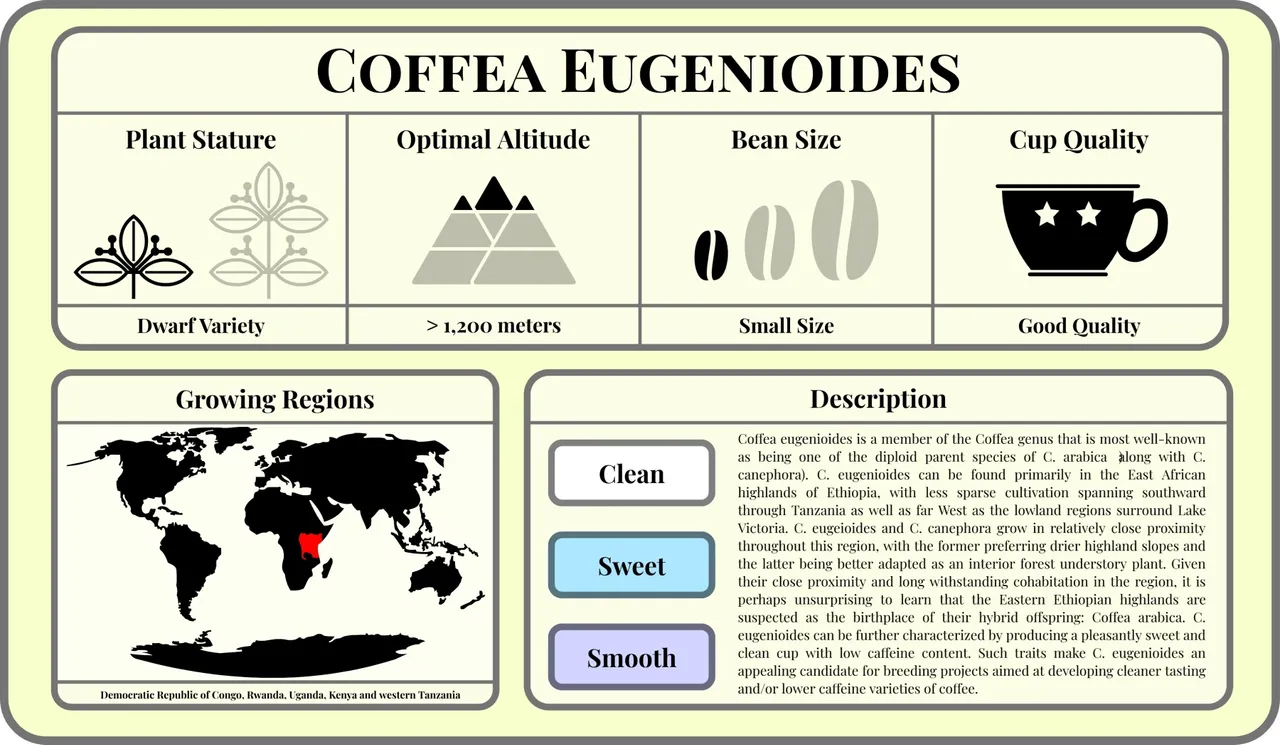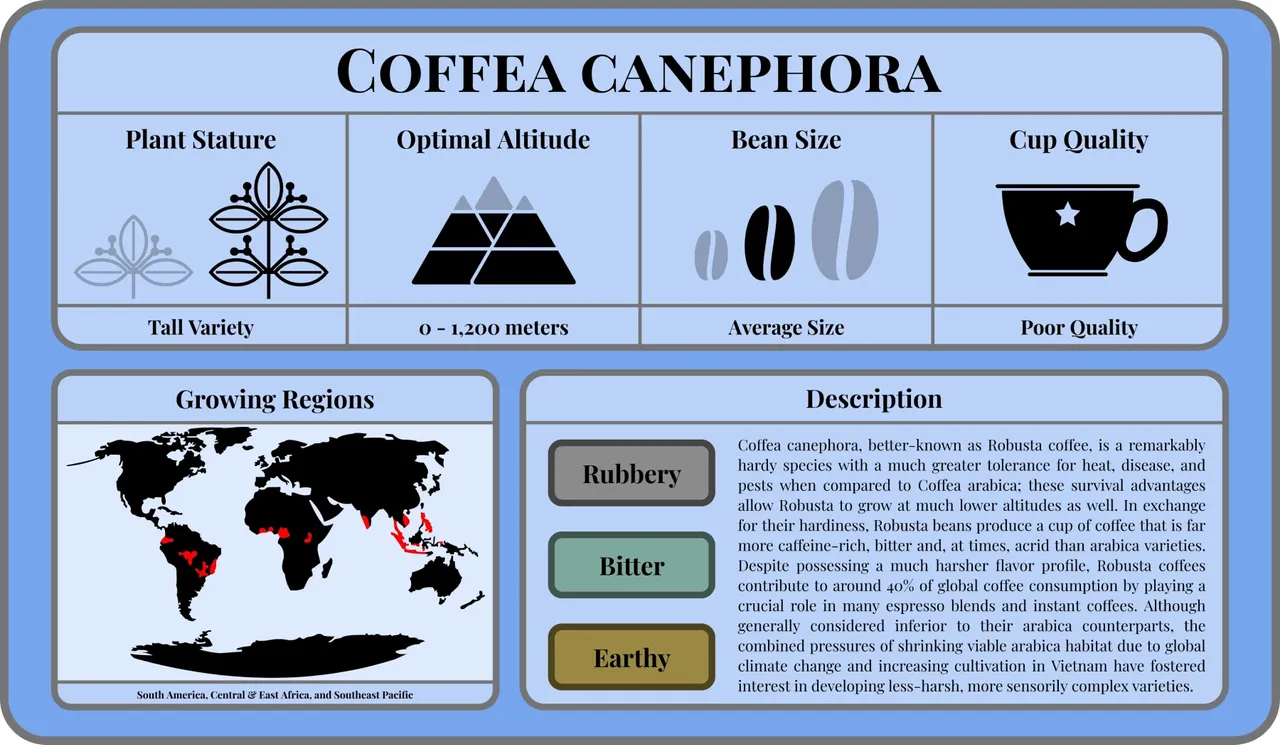}
Coffea arabica
First described by Carl Linnaeus in 1753, Coffea arabica is the most important commercially traded species in the Coffea genus, Accounting for just under 60% of global coffee consumption. Coffea arabica is the hybridized offspring of Coffea canephora and Coffea eugenioides. Today arabica varieties can be broadly subdivided into three lineages: Typicas; Bourbons; and Ethiopian Varieties. Arabica coffee beans are considered to produce the best tasting species in the arabica genus. Arabica coffees are typically grown in stable tropical /subtropical climates at altitudes greater than 600 m. Finer varieties are associated with growth at greater heights; however, as climate change continues to alter arabica plantation habitat and aid the spread of pests, many growers are forced to resort to planting the less palatable but hardier canephora species.
Coffea eugenioides
Coffea eugenioides is a member of the Coffea genus that is most well-known as being one of the diploid parent species of C. arabica (along with C. canephora). C. eugenioides can be found primarily in the East African highlands of Ethiopia, with less sparse cultivation spanning southward through Tanzania as well as far West as the lowland regions surround Lake Victoria. C. eugeioides and C. canephora grow in relatively close proximity throughout this region, with the former preferring drier highland slopes and the latter being better adapted as an interior forest understory plant. Given their close proximity and long withstanding cohabitation in the region, it is perhaps unsurprising to learn that the Eastern Ethiopian highlands are suspected as the birthplace of their hybrid offspring: Coffea arabica. C. eugenioides can be further characterized by producing a pleasantly sweet and clean cup with low caffeine content. Such traits make C. eugenioides an appealing candidate for breeding projects aimed at developing cleaner tasting and/or lower caffeine varieties of coffee.
Coffea canephora
Coffea canephora, better-known as Robusta coffee, is a remarkably hardy species with a much greater tolerance for heat, disease, and pests when compared to Coffea arabica; these survival advantages allow Robusta to grow at much lower altitudes as well. In exchange for their hardiness, Robusta beans produce a cup of coffee that is far more caffeine-rich, bitter and, at times, acrid than arabica varieties. Despite possessing a much harsher flavor profile, Robusta coffees contribute to around 40% of global coffee consumption by playing a crucial role in many espresso blends and instant coffees. Although generally considered inferior to their arabica counterparts, the combined pressures of shrinking viable arabica habitat due to global climate change and increasing cultivation in Vietnam have fostered interest in developing less-harsh, more sensorily complex varieties.



Publish0x reflink: https://www.publish0x.com?a=M7e58kDYd2
PeakD reflink: https://peakd.com/register?ref=tych021
NFTShowroom reflink: https://nftshowroom.com/?r=tych021